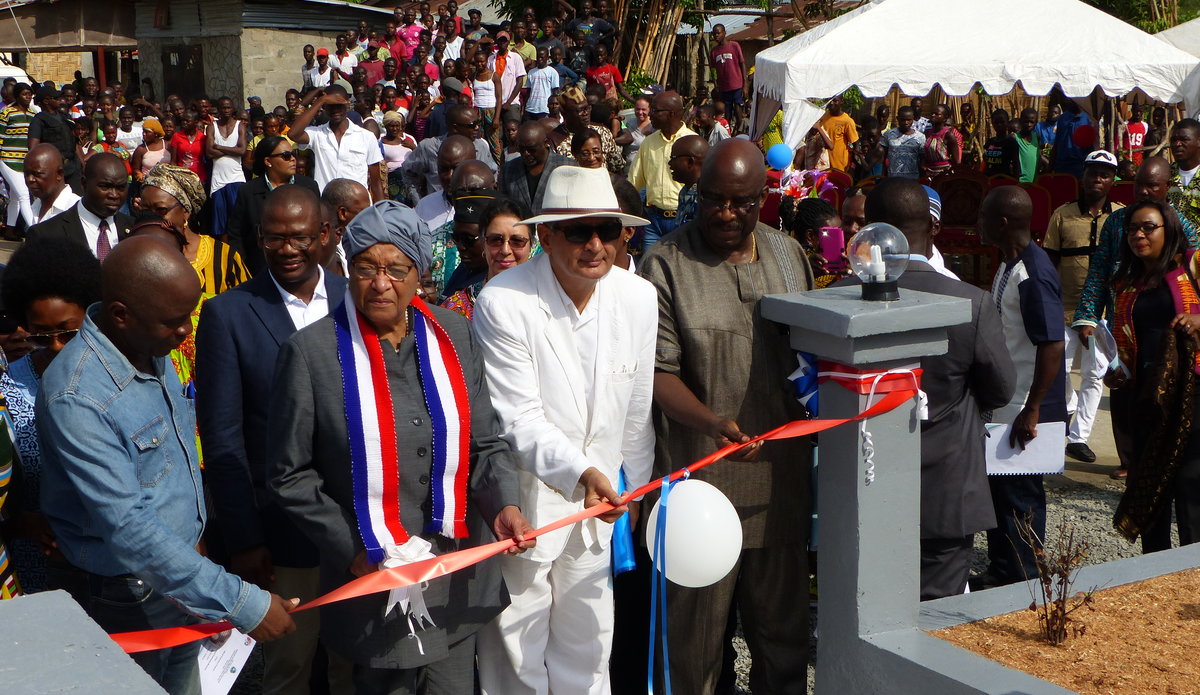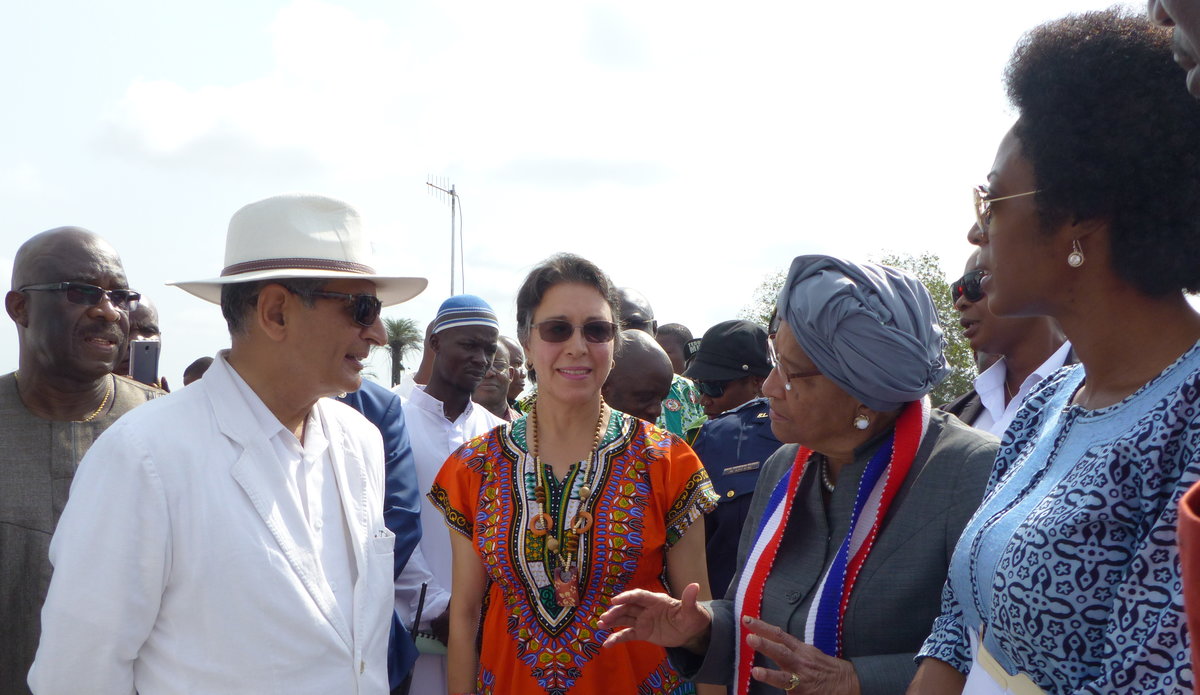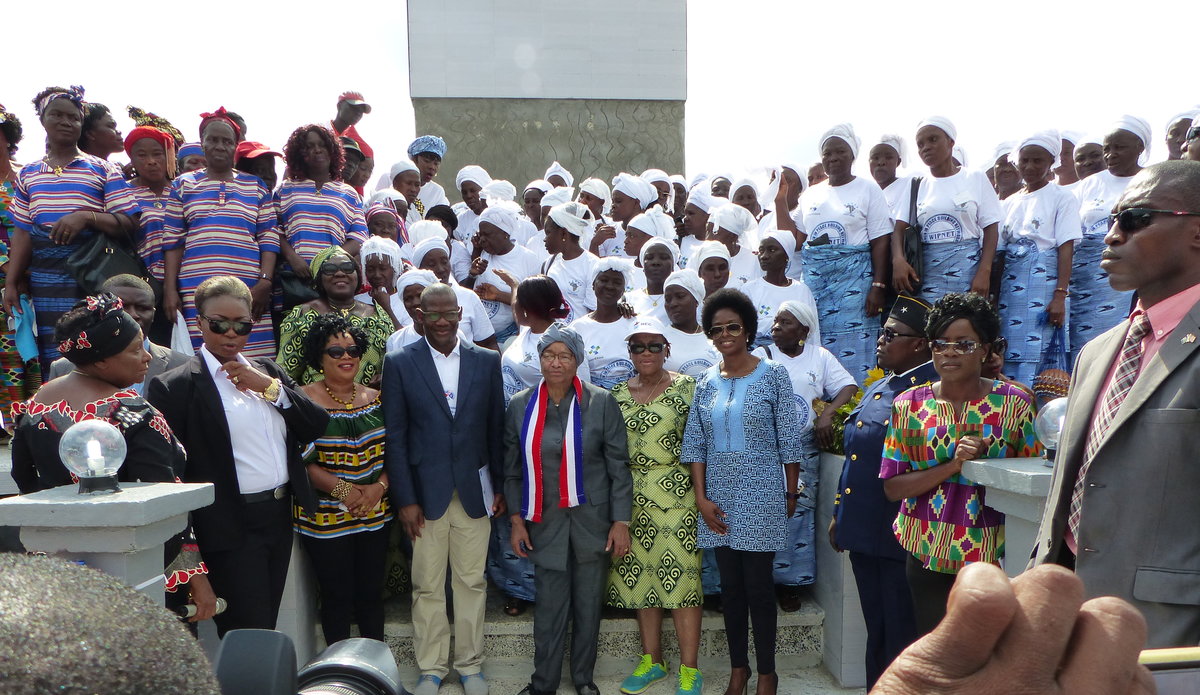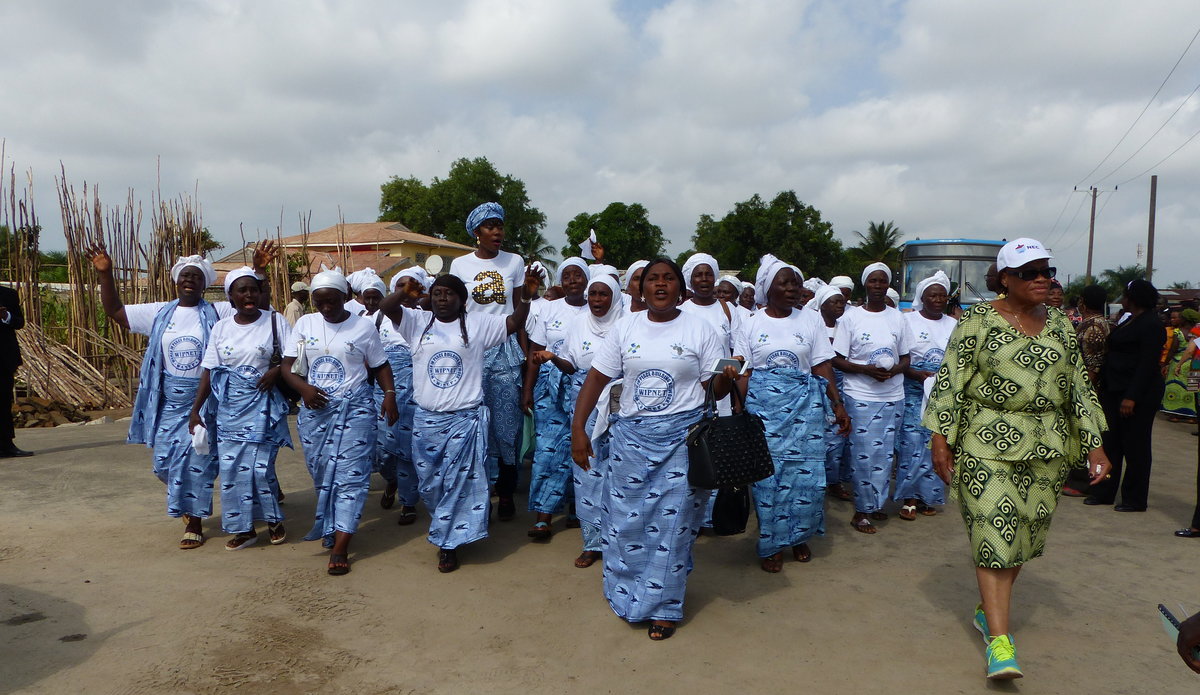Liberian Government dedicates Du-port road community memorial site
Monrovia - On 8 March 2017, President Ellen Johnson Sirleaf dedicated the Du-port Road Community Memorial in Monrovia. According to the Independent National Commission on Human Rights (INHCR), the Memorial was built to serve as a symbol to honor the memories of Liberians who died in difficult and horrible circumstances during the civil war and buried in a mass grave as well as to foster national healing, unity and peaceful coexistence.
Addressing the occasion, President Ellen Johnson-Sirleaf expressed appreciation for the Memorial, which was part of the recommendations of the Truth and Reconciliation Commission, and thanked the United Nations for funding it. She noted that peace and reconciliation would contribute to nation building and disclosed that the Government had implemented most of the 207 TRC recommendations, except those on War Crimes, Reparations and Lustration.
While welcoming the memorialization of the dead, Special Representative of the Secretary-General and Head of UNMIL (SRSG) Farid Zarif stressed the importance of remembering survivors psychologically affected and carrying wounds from the war, and that Liberians should ensure that the country remains one nation through peace and reconciliation. The memorial is a solid step toward building a sustainable environment for that national reconciliation. It is, more importantly, one of the very useful non judicial initiatives aimed at ensuring collective engagement for forgiveness and justice.
The memorial was built at a cost of USD 59,000.00, monies provided by the United Nations Peacebuilding Fund and managed by UNDP.
The memorialization component of the Community–based Truth Telling, Atonement and Psychosocial Recovery Project (Palava Hut Project) is aimed at creating an enabling context for building shared identity and narratives out of the violent past and help empowering communities to own their history.
©UNMIL Photo: K. Leigh Robinson
 UN
UN United Nations Peacekeeping
United Nations Peacekeeping










